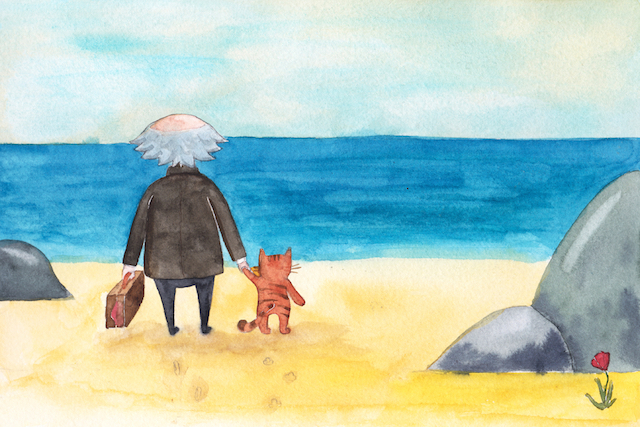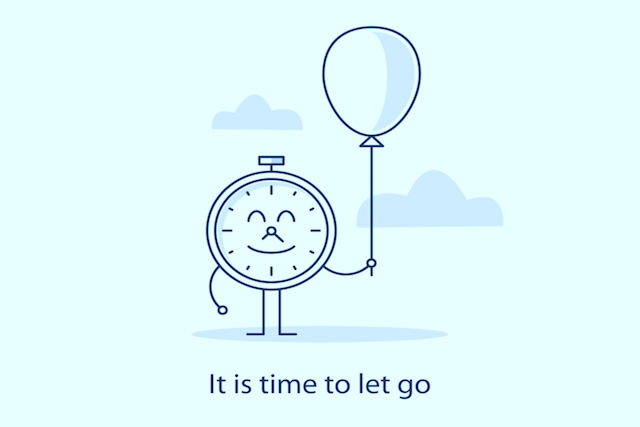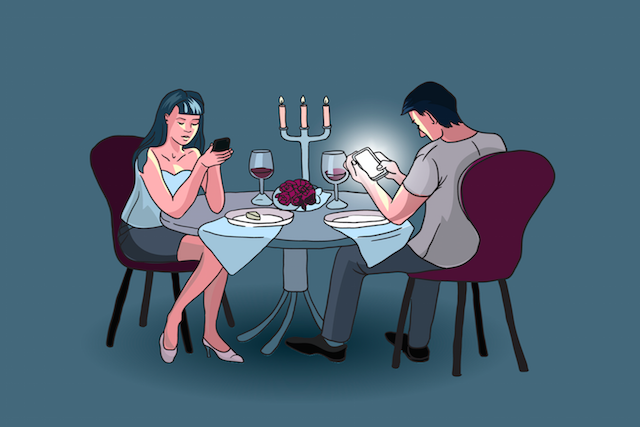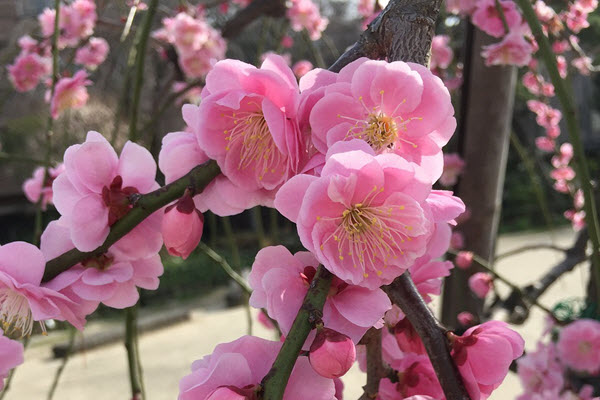
The philosopher Alan Watts always said that life is like a song, and the sole purpose of the song is to dance.
He said that when we listen to a song, we don’t dance with the goal of getting to the end of the music. We dance to enjoy it.
This isn’t always how we live our lives. Instead, we rush through our moments, thinking there’s always something better, there’s always some goal we need to achieve. This is my journey through a song without the dance and the lessons I’ve learned, from Alan Watts, along the way.
“Existence is meant to be fun. It doesn’t go anywhere it just is.”
I sat in my car, fixated on my hands. Hot tears welled in my eyes and slowly streamed down my cheeks. I lost focus of the very thing that held the answer to my problem.
I remember thinking about how my nails grow on their own, how my hair grows and my heart beats, and the tears fall. All without effort or pain, these things happen. They’re effortless. Why was life so difficult?
At twenty-two, my goal was to be successful. I wanted to be someone—to have more and be more than I thought I was. I needed to justify something to the world, but I didn’t know what I was trying to prove.
I was a mother at eighteen years old, it was a setback but never a regret. Even so, I felt judged. At twenty-three I had my second daughter. I was a wife with two kids and a low paying job.
I had a loving husband and two beautiful kids, but I wasn’t happy. I wanted more. In the quest for more, I traded my time for a particular brand of success. The kind of success that you can only achieve through money and status. Something precious for something I felt would give me vindication from society.
“The whole point of dancing is the dance.”
When I was twenty-eight, I had done all the things society tells us to do. I went to college, I got a high paying job, and I was climbing my way to the top. I was lucky, but it didn’t feel that way. The goal was to have everything and make it look effortless. Except it wasn’t effortless, and nothing came easy. I had missed the point; I’d played the song but I didn’t dance.
“You live life by analogy, a journey with a pilgrimage to get to the end success, heaven, whatever. You missed the point, you were supposed to dance.”
I became a government contractor, far from a dream but it brought success. Maybe you became an insurance salesman or a real estate agent. Like me, you work hard every day. You get up and go through the routine that you know will make you successful. You work harder and longer hours because you know that if you just keep working, success will come.
Then you turn forty. You’re exhausted. Life has taken its toll, but you’ve made it. You’re successful. This existence is what you worked for, it’s everything your ego wanted, and you did it. You traded the precious moments for eighty-hour work weeks, but you did it. Now you can dance. Now life can start.
You look around at your beautiful home and your expensive cars. There comes the point when you realize that the cars and the house don’t feel the way you imagined they would. These are symbols of your success. Your ego needed them, but your heart needed something far more valuable.
“I must survive means you are not playing.”
Perhaps your story isn’t like mine, and at forty you’re still working a dead end job, working to pay the bills. Wishing you had more time with the ones you love. I know it’s not easy. To compare my story to yours would be missing the point of the message.
The point is, no matter how far you get or how hard you work you will always want to get to the next level. Sure material things bring comfort, but they don’t bring happiness. You will always be where you are in your heart until you realize that life isn’t about material possessions.
Our lives are not about things and status. Even though we’ve made ourselves miserable with wanting, we already have everything we need. Life is meant to be lived. If you can’t quit your job tomorrow, enjoy where you are. Focus on the best parts of every day. Believe that everything you do has a purpose and a place in the world.
Happiness comes from gratitude. You’re alive, you have people to miss when you go to work, and you get to see them smile every day. We all have to do things we don’t want to do; we have to survive. When you find yourself working for things that don’t matter like a big house or a fancy car, when you could be living, you’ve missed the point. You’re playing the song but you’re not dancing.
“A song isn’t just the ending. It’s not just the goal of finishing the song. The song is an experience.”
I remember going to school at night when I could have been home with my daughters. My little girls cried at the door as I left them. I tried to reason with myself. I was doing all of this for them.
I wanted my daughters to be proud of their mother. I was setting a good example. Their mother was going to be someone, for them. As I turned my back on them, I cried too. I hated that I had to leave.
In truth, I made a choice to leave them. Everything we do in life is a choice that we’ve made. Telling ourselves that we don’t have a choice is the biggest lie of them all.
I made excuses and created a hero version of myself that was doing it all for my family. My daughters didn’t need status. I needed that. All they needed was me. Some days the tears were flowing so much I couldn’t drive, so I sat in my car and I fixated on my hands. I wondered why my nails had it so easy.
I was so close to understanding that growth is all we have to do. There’s no effort in growing or dying. These things are inevitable. We make it difficult because we choose to.
My hair grew, and my heart beat without effort or understanding. These seemingly simple things understood a lot more about life than I did as a whole person.
All I had to do was be, exist, experience, love, and have gratitude, but I didn’t. My struggle went on for years. It was far from the picturesque life I was trying to achieve. I chose to do it anyway.
“Try to sleep, and you can’t sleep. You’ve got to let go. If you don’t, you’ll constantly try and keep yourself wound up.”
I think about my struggle for success, working during the day and going to school at night. Missing my husband and my kids, I thought someday this would all get easier. When I think back on that time in my life I never wish I had worked harder.
I wish I had more memories with my family.
Now I have everything I wanted back then, but it doesn’t feel like you’d think it would feel. What was I expecting? I didn’t feel any different than I always felt, except that I had a corner office, a fancier house, and nicer clothes.
An ideally located office—this is what it all came down to in the end? It’s very anticlimactic when the new car smell wears off, and all you have is a large payment and more hours at work.
We all think that when we’re at the top, everything should be amazing, but it’s not. Your children have grown older, and you don’t remember the little things.
“…tomorrow and plans for tomorrow can have no significance at all unless you are in full contact with the reality of the present, since it is in the present and only in the present that you live.”
You feel cheated of your time, cheated by time. Now you have to make up for it. You have to live, make the most of what you have left. So you set another goal.
This time you’ll build memories and see places, do things you never got the chance to do. The list grows, and you wonder how you’ll get it all done and still make your large mortgage payment. You work more hours so you can do all this stuff “someday.” You’ve overwhelmed yourself again.
You’re missing the point.
Stop wanting more, be grateful for today. Live in the moment. Cherish your life and the time you have in this world. If it happens, it happens. If it doesn’t, then it wasn’t meant to; let it go.
“We think if we don’t interfere it won’t happen.”
There’s always an expectation, always something that has to get done. You pushed aside living so that you could live up to an expectation that doesn’t exist to anyone but you. The expectation is always there because you gave it power. To live, you’ve got to let it go.
You save all your money so that you can retire. You live to retire. Then you get old, and you’re too tired to live up to the expectation you had of retirement; you never realize your dreams.
At forty you felt cheated, at eighty you are cheated. You cheated yourself the whole way through to the end.
“Your purpose was to dance until the end, but you were so focused on the end that you forgot to dance.”
I quit my job at forty, I worked too much and I never got the chance to live. I don’t have a powerful positon. I have a job with less stress. I’m not holding the weight of the company on my shoulders. I also make a lot less money.
I can work fewer hours and live with less stuff, but I’ll never get back what I’ve lost. Money, fancy cars, and a big house will never give back my time. The moments, the little things live in the past, they’re gone.
“Life should be easy and fun, effortless, but we rarely let it be what it is.”
We’re always striving for more, never satisfied with where we are. More is always better. Happiness and fulfillment are always just out of reach. When we’re growing up, we strive to finish high school. Then the goal is college, then grad school. We have a family, and we live through the challenges of life, but we never stop to realize the grace in each moment. We never dance.
Gratitude for life itself is still ahead of me. The song is still playing, and it’s never too late to live in the present and enjoy the dance.
![]()
About Mercy Torres
Get in the conversation! Click here to leave a comment on the site.
The post It’s Never Too Late to Start Living in the Moment and Enjoying Your Life appeared first on Tiny Buddha.
from
https://tinybuddha.com/blog/never-late-start-living-moment-enjoying-life/























